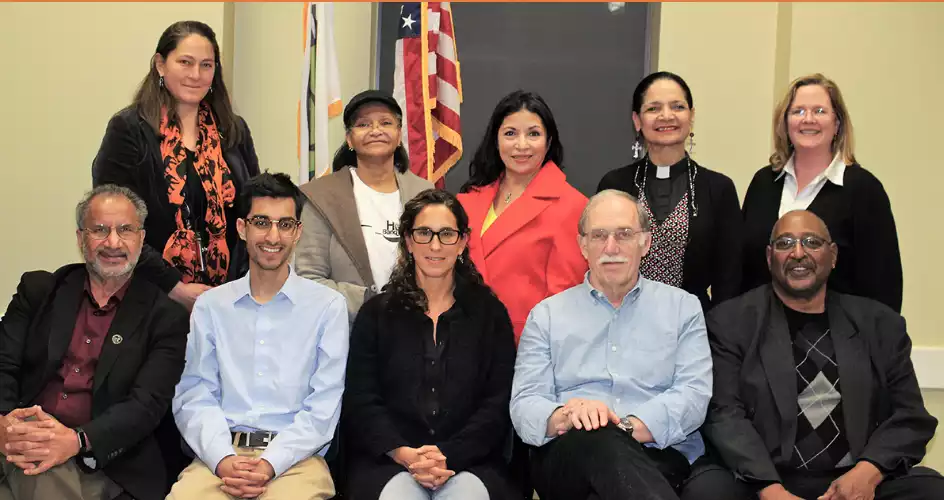
To extend our community outreach, the library partners with many of the municipal, non-profit and business organizations that make Princeton such an extraordinary town. This month, the Civil Rights Commission (CRC) of Princeton is in the spotlight and we spoke with Thomas A. Parker, Commission Chair to learn more about this partnership.
The library has collaborated with the Civil Rights Commission both on public programming and also to provide a neutral space for members of our community to directly connect with members of the CRC to share questions and concerns.
How long has the Civil Rights Commission been in Princeton?
The mandate of the Civil Rights Commission stretches back over a half a century. Following the call of then-President Johnson and the passage of the Civil Rights Act of 1964, citizens joined with the municipal governments of Princeton (back when there were two) and answered the call. By 1968 they had created Princeton’s Joint Commission on Civil Rights.
What are your primary areas of focus?
The mandate of the CRC is to protect and advance the freedom of everyone in our community. The Commission carries out this obligation with three kinds of activity:
- We make recommendations to the municipal government about best practices that the town can adopt;
- We conduct outreach and public education so that members of the public, as well as private and public interests understand their rights and responsibilities;
- Through our conflict resolution function, we field complaints from members of the public who feel their civil rights have been violated. If the parties cannot arrive at a satisfactory resolution under the local process, the complainant may bring their grievance to the NJ Division of Civil Rights which will investigate the matter and decide how to proceed.
How does your mission align with the library’s?
The CRC strives to make Princeton a community where all residents feel safe, respected and where they have equal access to opportunity and advancement. The PPL is the public space in town that best embodies that mission.
With whom do you work most in the community?
On a regular basis, the CRC partners with the Office of Human Services, the Princeton Public Library, the Public Schools, Princeton University, the Latin American Legal Defense and Education Fund, the Witherspoon-Jackson Neighborhood Association, Not in Our Town, and various neighborhood groups, businesses and congregations.
What is something that you do that people might not know about?
The conflict resolution/mediation capacity of CRC is a valuable function available to anyone who feels they have been mistreated and their civil rights may have been violated.
Since 1945 when New Jersey became the first state to pass a comprehensive anti-discrimination law, the state has had one of the broadest definitions of civil rights in the country. A valid civil rights grievance may concern discrimination on basis of race, sexuality, gender presentation, language spoken and many others such as mental or physical disability or marital status.
Is there any project or event that you are particularly excited about at the moment?
We are particularly excited about our community education programming including Know Your Rights seminars, a range of community dialogues, film screenings, and an ongoing “study circle” focused on equality of opportunity a reality in our community. In the works is also a train-the-trainer opportunity in collaboration with the New Jersey Attorney General’s Division on Civil Rights as well as other events with our great community partners such as the LGBTQ center of Princeton University, Princeton Public Library, Princeton Human Services, Princeton Police Department, The YWCA, The WJNA, NIOT just to name a few.
We are also proud to have worked with members of the community and others to pass an Indigenous Peoples Day resolution for the town of Princeton.
Photograph by Patricia Soll
